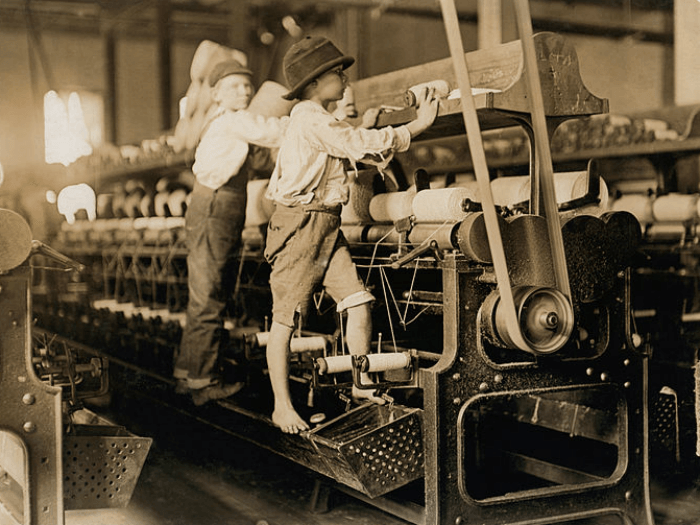by Jack Kelly
We like to imagine that we live in the most innovative era in history. After all, we’ve experienced the digital revolution. We’ve seen the power of computers grow at warp speed. We can’t get enough of smartphones and robotics and online everything.
But it was our great-grandparents who really lived through the most astounding period of technological change in human history. It was known as the industrial revolution. It got off the ground in the early 1800s when water power was harnessed to run machinery in the textile mills. The next step was steam power, which revolutionized both industry and transportation. By the end of the century, electricity was bringing changes that had never been dreamed of.

One of the biggest transformations of the era was the shift in population from farms and rural areas to cities. Cities had been centers of commerce, now they became the home to vast manufacturing enterprises and the exploding population of workers needed to man them. America became an urban society.
Industrialization transformed the production of goods. Machines performed tasks rapidly, precisely, and without rest. Advances in automation and metal working enhanced productivity.
One of the effects was to create what we call the consumer culture. Things people used to make at home or buy from craftsmen were suddenly available cheaply because of mass-production. No more homespun cloth or homemade soap. Now there were record players, typewriters, Kodak cameras, and machine-made furniture. The Sears Roebuck catalogue became the Amazon of its day.
Manufacturing output in the United States in the early 1900s was more than twenty times what it had been before the Civil War.
Transportation changed utterly. First, the steamboat. Then the locomotive. Electric streetcars meant that folks could suddenly commute to work. That gave birth to the first suburban sprawl.
Continue reading The Edge of Anarchy Part Two: American Industrialization on the Unknown History channel at Quick and Dirty Tips, or listen to the full episode below.
